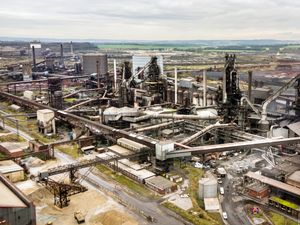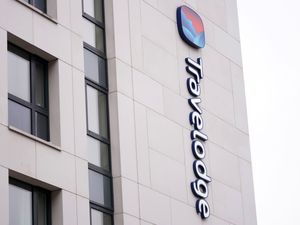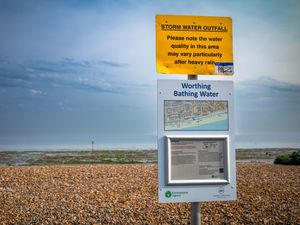Strike action over railway safety ‘necessary’, says Transport Secretary
Heidi Alexander also vowed the Government will take railways into public ownership ‘without any cost to the taxpayer’.
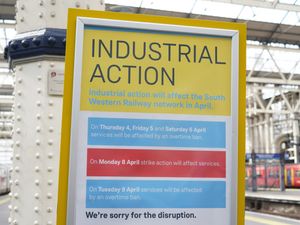
Strikes related to railway safety fears are “necessary”, the Transport Secretary has said as she vowed to take railways into public ownership “without any cost to the taxpayer”.
Heidi Alexander told MPs she will not “take any lessons” about strikes from the Conservative opposition, when shadow transport secretary Gareth Bacon asked her whether walkouts over pay and conditions are “necessary”.
Industrial action on the railways between June 2022 and last year cost around £850 million in lost revenue, Ms Alexander said.
Members of the Aslef trade union agreed to end their dispute when they were offered backdated pay rises of 5% for 2022 to 2023; 4.75% for 2023 to 2024; and 4.5% for 2024 to 2025.
Mr Bacon quoted Ms Alexander, who has previously said on the BBC’s Politics Live programme “there will be occasions on which strikes will be necessary”.
He asked: “Could the Secretary of State please provide the House with an example of a ‘necessary’ strike?”
Ms Alexander, who was previously Mayor of London Sir Sadiq Khan’s deputy responsible for transport, replied: “(Mr Bacon) will know that I have extensive experience from my time in London where we did take strikes when safety was at risk, and so that would be one direct example I would give him.”
In a follow-up question, Mr Bacon quoted Maryam Eslamdoust, general secretary of the Transport Salaried Staffs’ Association trade union, who said a “just transition” of rail firms into public ownership means “levelling up of pay and conditions to rail workers”.
The Conservative frontbencher warned the cost of bringing railways into public ownership, under the Government’s Great British Railways banner, “could be extremely considerable”.
He asked: “Would the Secretary of State consider a strike over harmonising pay and conditions to be a ‘necessary’ strike?”
Ms Alexander said: “Let’s be clear, the cost of those national rolling strikes over two years was £850 million in lost revenue, so I’m sorry but I’m not going to take any lessons from (Mr Bacon) opposite on industrial relations on the railway.”
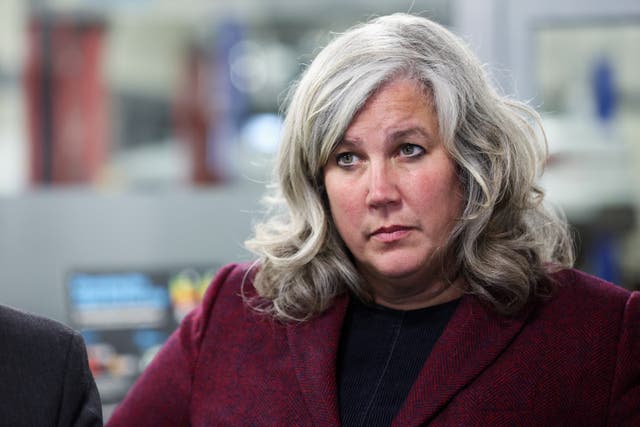
The Transport Secretary had earlier restated the Government’s “commitment to bring the train operating companies back into public ownership without any cost to the taxpayer”.
Conservative shadow transport minister Jerome Mayhew had said: “We are told that nationalisation is the answer to improve passenger rail performance.
“So if that’s the case, surely it would make sense to start by nationalising the worst performing operators first.
“CrossCountry comes last out of all train operating companies for passenger satisfaction. We know it’s not complying with its obligations, so the minister could call-in that contract.
“So why isn’t this the first operator to be nationalised under GBR?”
The national train operating company recently had the highest cancellations score in the year to February 1 – at 7.36% – according to Office of Rail and Road data.
Nationalisation is expected to begin this year, with the Government taking over franchised services when existing contracts end, or when a contractual break point is reached.
CrossCountry’s core term is expected to end in October 2027, under a contract which could continue into 2031.
Ms Alexander replied: “We made the commitment to bring the train operating companies back into public ownership without any cost to the taxpayer, and so when the franchises expire that is the appropriate point at which to bring the train operating companies back into public ownership.
“If there is terrible performance we can seek to break a contract earlier.
“I’m pleased there are some improvements on CrossCountry, we are seeing improvements on the train operating companies that have been brought into public ownership, particularly if you look at passenger journeys and revenue growth on TransPennine and LNER, there’s a really positive story to tell.”

